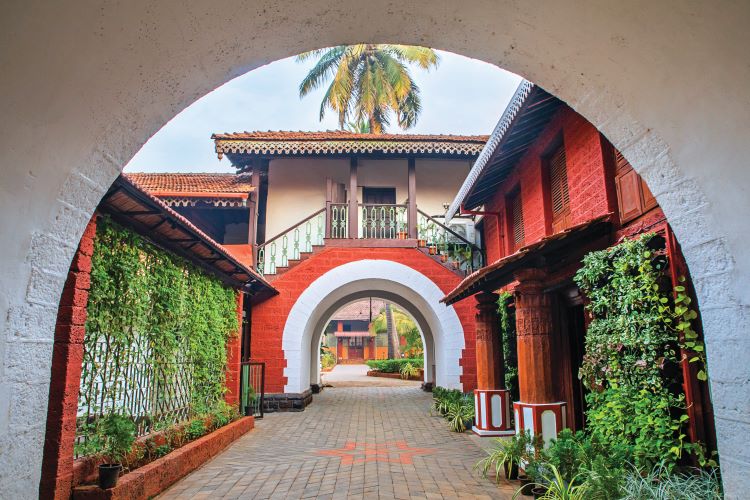The ongoing pandemic has made students realise the importance of upskilling at all levels and adapting to any situation in order to continue their growth trajectory.
Neha Rawat
Kulmohan Singh Professor of French and English, In-Charge of Placement and International Internships & Member of the Outreach Programme Vatel Hotel and Tourism Business School
With hotels losing 90% of their business, do you think students would still be interested in a course in hotel management?
In order to reinforce a promising future for those who pursue a course in hotel management, we have conducted several webinars in which experts and professionals have expressed a concerted opinion that COVID is merely a ‘pause button’ – the industry will surely bounce back. Yes, the admissions might be slower at this time, but we are optimistic and will fill up our capacities as usual.
What careers do you expect students to make in this crisis?
There is a marked increase in demand for young graduates in Europe, especially in the UK, France and Germany. Our students, who are proficient in foreign languages, stand a bright chance in hotels, airlines, travel trade, event management and retail. However, once the domestic markets reopen, several new doors will open for them. Healthcare is emerging as a new domain.
Your students have been attending classes from home since almost four months. How have you maintained the academic rigor in your practical classes?
The dynamics of internet and YouTube have made everything possible. We have been conducting theory and practical classes, marking attendance, checking assignments, holding exams and declaring results the same way as
before the COVID-19 virus erupted. Even our college meetings, staff trainings and appraisals have been conducted online.
How are you making your students ready for the expectations that modern hoteliering imposes at the international level?
The world is a smaller place and ‘industrial connect’ is the key. Though the level of hospitality and personal care, as offered in the Indian hotels are unmatchable, our students are being allowed to undergo internships and exchange programmes at any of the Vatel campuses located the world over.
“Our students are being allowed to undergo internships at any of the Vatel campuses located the world over”
Poonam Bajaj Assistant Professor, School of Hospitality &Tourism Studies D Y Patil University
What is happening in the catering colleges in the new normal?
With the rapidly evolving situation, the hospitality industry is also going through radical changes and therefore educators must change the teaching and learning technique to prepare the students to stand firm and confident against any crises. Training and learning have shifted from offline to an online mode where the focus would be to help students understand the importance of multitasking.
How is the curriculum for students changing?
Institutions have to make a serious modification to the conventional curriculum to prepare students for the industry to work under crises. Educators will have to add a new protocol on receiving, cleaning and sanitizing techniques, hygienic food preparation, providing contactless food serving etc. They will have to sensitize the students towards workplace hygiene, new work protocols for health, safety and space hygiene, use of technologies like thermal scanners, contactless check-in and check-out procedures and knowledge of other contactless services in the hotel operations. In toto, educators will be responsible for restructuring of the contents to achieve learning outcomes.
Are there any changes in the techniques imparted for the Culinary Arts and Hotel Management studies?
The culinary as well as the hospitality students will be updated on change in processes like sanitising checklist,
of receiving area by sodium hypochlorite, segmentation of kitchen in the critical operation area, non-critical area and pre-preparation area, hygienic food preparation, use of 100 ppm chlorine for sanitising nonvegetarian items and 50 ppm chlorine for vegetarian items, no reuse of amenities etc.
“In an online learning mode the focus would be to help students understand the importance of multitasking”
Chef Stéphane Frelon Executive Chef cum Cuisine Chef Instructor, Le Cordon Bleu
What steps are you taking to deal with the ongoing pandemic?
We have adopted Le Cordon Bleu Health and Safety COVID-19 standards and incorporated some SOPs applicable locally to adapt to the new normal for the safety of our students. Also, we have always had an intimate class size with a 16:1 student-teacher ratio. To adhere to social distancing guidelines, we are teaching the theory lessons online as this minimises the contact duration. During practicals, our students are well spaced. When we re-opened our campus,
we sanitised the whole facility as the health and safety of our students is our priority. But the sanitization efforts didn’t just stop there – it has now become a regular practice and all stations and classrooms are effectively sanitised after every use. We have also installed air purifiers and diffusers to maintain clean & healthy air and as is normal, everyone must wear masks. All these efforts have inspired a lot of confidence in our students.
Are there any upcoming new programmes/courses?
During these times, it’s important to give back to society and help those who might have lost their jobs – the best we can do is equip them with skills and knowledge to enable them stand on their feet again. The government has provided aid to reskill the workforce, which has resulted in us developing a 5-weeks short course programme that will run for three months. Eligible youth will be trained so that they can start their own home-based businesses or even get employed in restaurants.
“We have adopted Le Cordon Bleu Health and Safety COVID-19 standards and incorporated some SOPs applicable locally”










